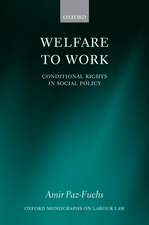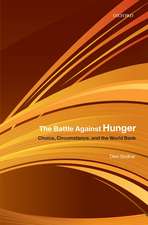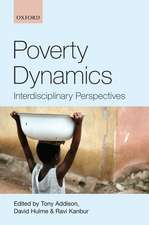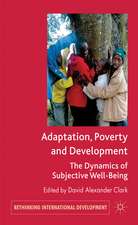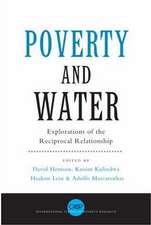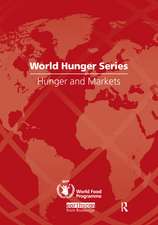Peasant Poverty and Persistence: International Studies in Poverty
Editat de J. Boltvinik, S. Mannen Limba Engleză Paperback – 14 aug 2016
Peasants are a majority of the world's poor. Despite this, there has been little effort to bridge the fields of peasant and poverty studies. Peasant Poverty and Persistence in the Twenty-first Century provides a much-needed critical perspective linking three central questions: Why has peasantry, unlike other areas of non-capitalist production, persisted? Why are the vast majority of peasants poor? And how are these two questions related?
Interweaving contributions from various disciplines, the book provides a range of responses, offering new theoretical, historical and policy perspectives on this peasant 'world drama'. Scholars from both South and North argue that, in order to find the policy paths required to overcome peasants' misery, we need a seismic transformation in social thought, to which they make important contributions. They are convinced that we must build upon the peasant economy's advantages over agricultural capitalism in meeting the challenges of feeding the growing world population while sustaining the environment. Structured to encourage debate among authors and mutual learning, Peasant Poverty and Persistence takes the reader on an intellectual journey toward understanding the peasantry.Preț: 195.38 lei
Nou
Puncte Express: 293
Preț estimativ în valută:
37.39€ • 38.80$ • 31.25£
37.39€ • 38.80$ • 31.25£
Carte tipărită la comandă
Livrare economică 17-31 martie
Preluare comenzi: 021 569.72.76
Specificații
ISBN-13: 9781783608430
ISBN-10: 1783608439
Pagini: 300
Dimensiuni: 140 x 216 x 30 mm
Greutate: 0.54 kg
Editura: ZED BOOKS
Colecția Zed Books
Seria International Studies in Poverty
ISBN-10: 1783608439
Pagini: 300
Dimensiuni: 140 x 216 x 30 mm
Greutate: 0.54 kg
Editura: ZED BOOKS
Colecția Zed Books
Seria International Studies in Poverty
Descriere
An innovative study of the ways in which peasants across the global South are persisting and resisting in the face of neoliberal capitalism and environmental degradation.








